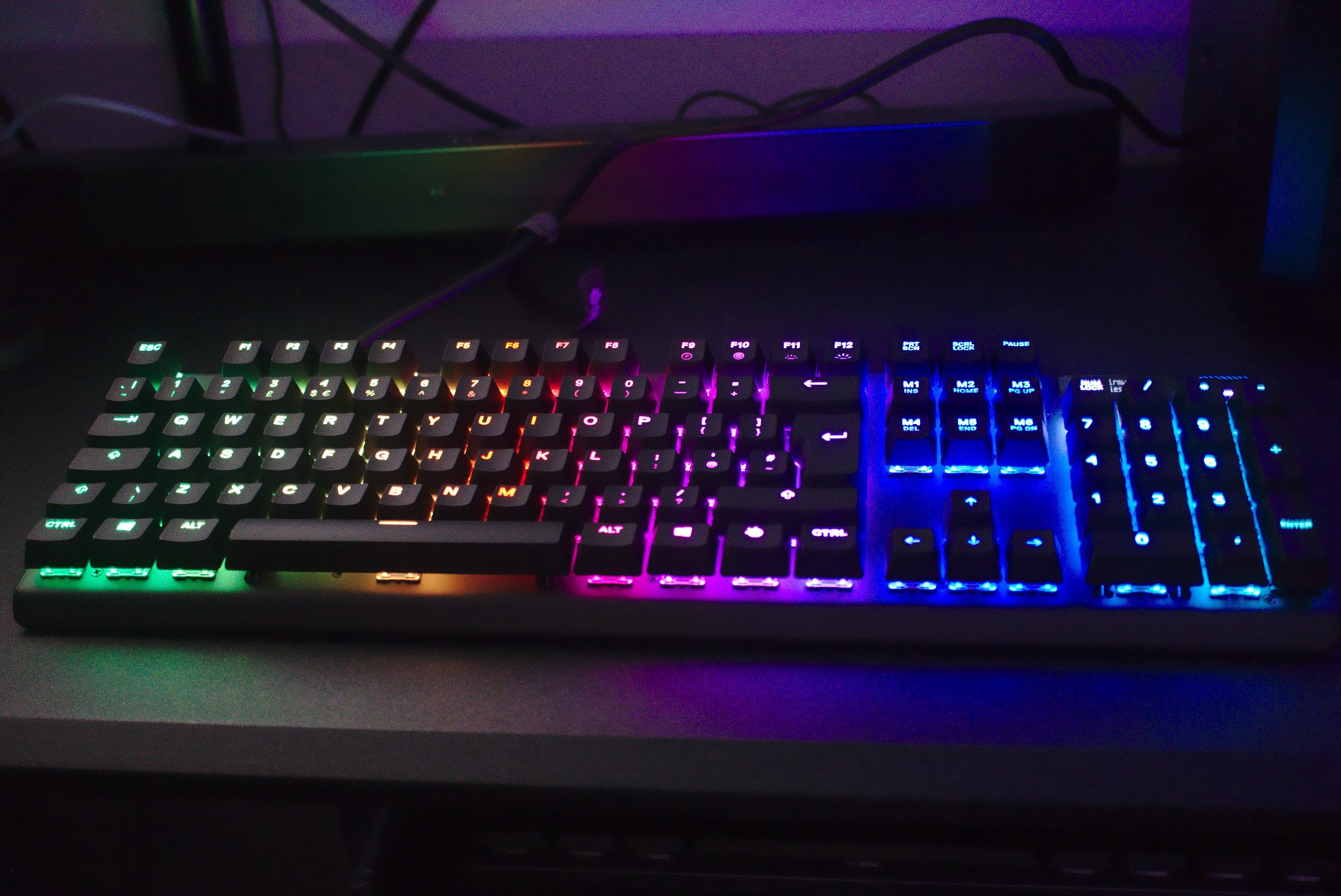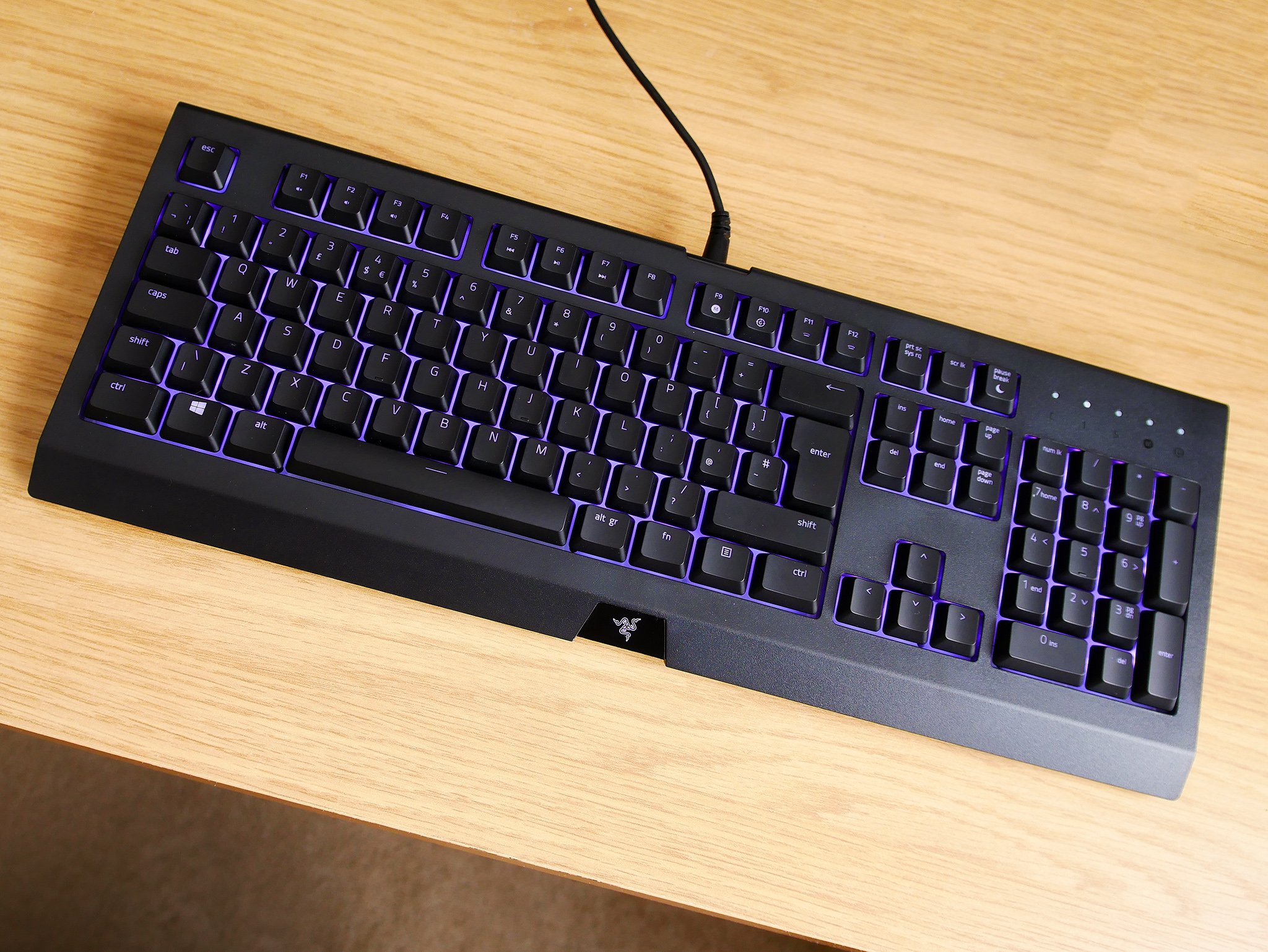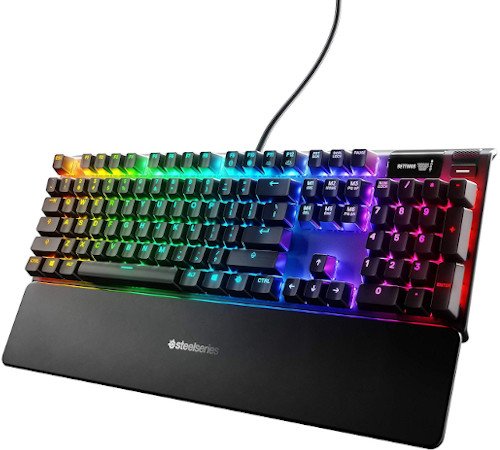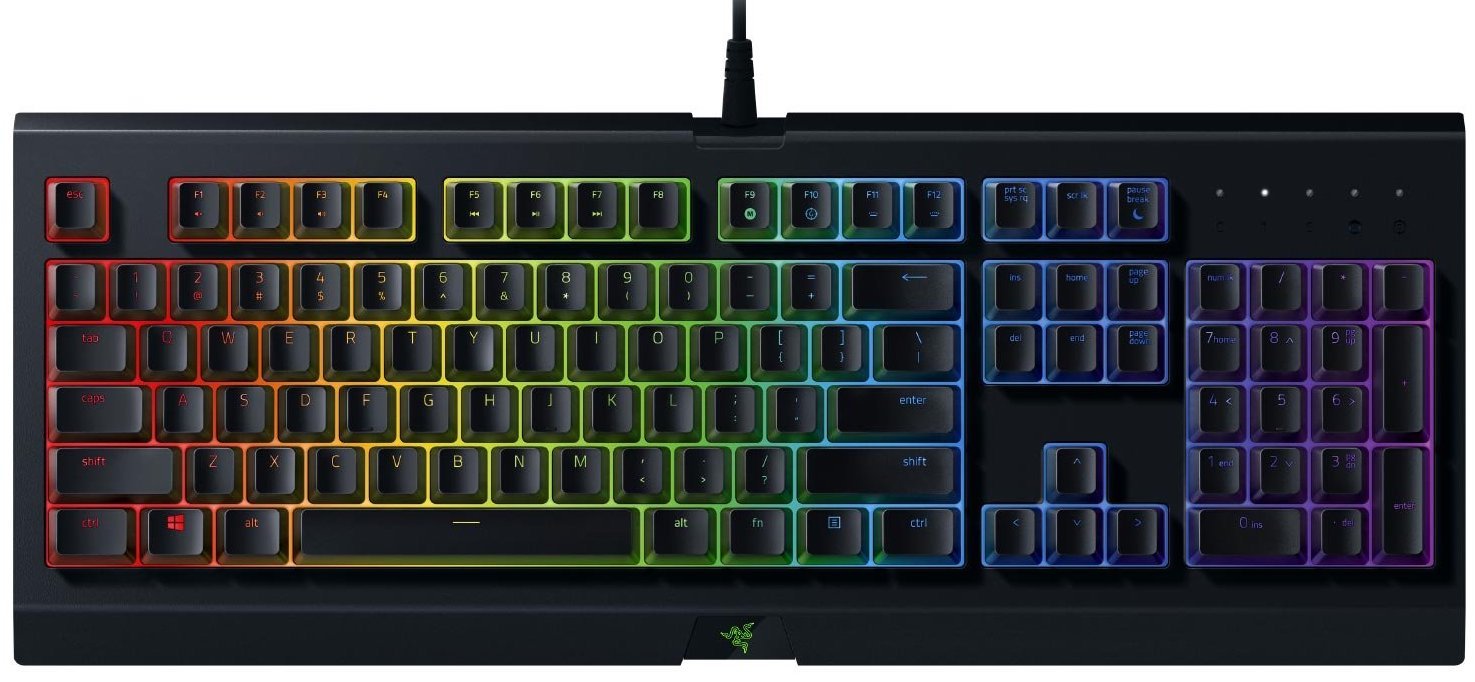Membrane keyboards vs. mechanical: What's the difference?

All the latest news, reviews, and guides for Windows and Xbox diehards.
You are now subscribed
Your newsletter sign-up was successful
Membrane keyboards vs. mechanical: What's the difference?
What are the differences between membrane and mechanical?
The main difference between membrane and mechanical keyboards is how they feel. Membrane keyboards have a distinct "mushy" type feel when you press down on their keys due to the rubber underneath them. Meanwhile, mechanical keyboards feature spring-loaded switches under the keycaps that actuate smoothly when you press them, responding with an audible "click" sound. Mechanical keyboards give better overall feedback to the user than membrane ones do when typing because of this design, but they're also much louder compared to the relative silence of membrane keyboards.
Another thing that often separates membrane and mechanical boards is the presence of key rollover. This feature allows your keyboard to successfully detect several different key presses at the same time, which is invaluable while playing games that feature input combos (for example, crouch jumping). It's also helpful if you're a rapid typist. Without key rollover, keyboards will lag behind your inputs due to their limited processing. Mechanical keyboards always have key rollover, but membrane keyboards almost always lack full key rollover.
Membrane keyboards do have one edge, though: affordability. Membrane keyboards are much less expensive than mechanical ones across the board, making them great choices if you're on a budget. That being said, there are also several affordable mechanical boards on the market as well, so membrane keyboards aren't without competition in this space.
Which should you choose?
Ultimately, the choice between membrane and mechanical should be based on what you need from your keyboard. If you spend a ton of time typing or you want something that's great for gaming, you should go with a mechanical board. The feedback on mechanical keyboards is fantastic, and as long as you can deal with the noise (and the increased cost), you'll have a much smoother typing and/or gaming experience thanks to the support for full key rollover. Our favorite mechanical keyboard is the SteelSeries Apex Pro, which has an excellent design, provides an amazing typing and gaming experiences, and comes with a cool wrist rest and RGB lighting to boot.
If you're on a budget or you're planning on typing only every once in a while, a membrane keyboard is the way to go. They're more affordable and still provide a good typing experience, although the lack of key rollover makes them poor choices if you type fast or play games. One of our favorite membrane keyboards is the Razer Cynosa Chroma, which features a solid design, cool lights, and 10-key rollover that's limited compared to what mechanical keyboards offer, but still helpful nonetheless.
If neither of these keyboards is right for you, make sure to check out our roundup of the best keyboards and best gaming keyboards for more options.
All the latest news, reviews, and guides for Windows and Xbox diehards.

Brendan Lowry is a Windows Central writer and Oakland University graduate with a burning passion for video games, of which he's been an avid fan since childhood. He's been writing for Team WC since the summer of 2017, and you'll find him doing news, editorials, reviews, and general coverage on everything gaming, Xbox, and Windows PC. His favorite game of all time is probably NieR: Automata, though Elden Ring, Fallout: New Vegas, and Team Fortress 2 are in the running, too. When he's not writing or gaming, there's a good chance he's either watching an interesting new movie or TV show or actually going outside for once. Follow him on X (Twitter).



